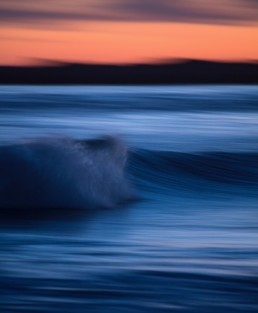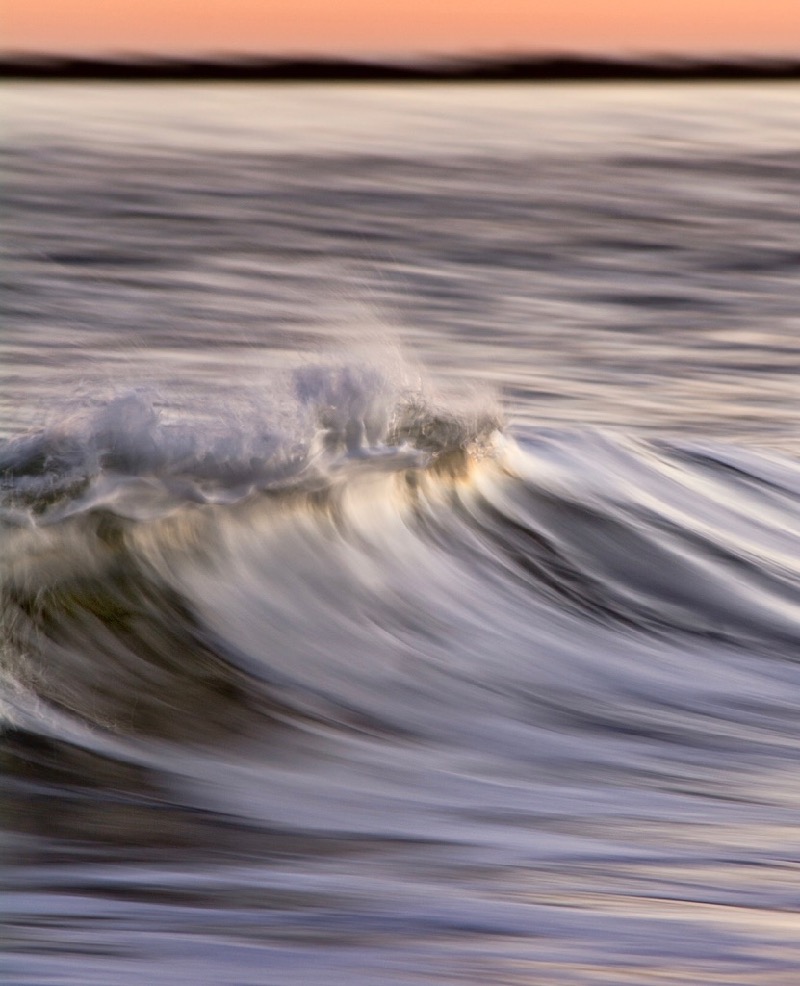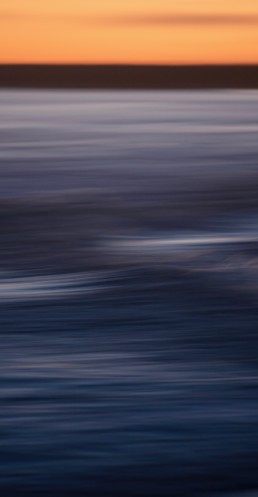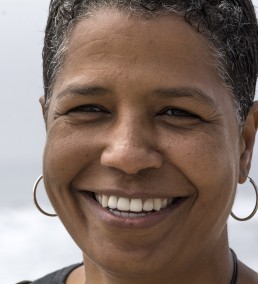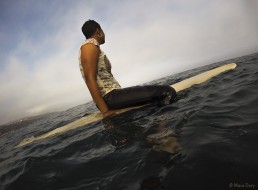Choice, acceptance, and caretaking in the dark
Every life includes moments when there’s a fundamental shift, something beyond our control and, potentially, our capacity to comprehend. Sometimes these shifts are brought about by a dramatic event: a birth, death, or diagnosis, something that we can’t help but have enough sense to notice, attend to, try to remember and learn from. Sometimes these alterations in our world, and in how we are in it, bring with them a series of clear choices. But, for those of us who live a life of sufficient food, water, shelter, and lots and lots of screens, these potential shifts can often start as subtle, seemingly minute changes, as subtle as a day that’s a couple of minutes shorter, then one that’s longer. Changes like these are easily overlooked in the sensory onslaught of our culture with its pop-up plagued, quantum acceleration of the superficial masquerading as the meaningful.
Many of us, myself definitely included, have to struggle (if we think to struggle) to hold on to a connection to a sensory world that’s not altered by our immediate choices. We have to cultivate a daily feeling of full embodiment, of being alive, loving, hurting, laughing, grieving social primates in an enchanting web of life that somehow, improbably, landed us here, in a place. Perhaps we encounter mystery and resilience in a squirrel in the backyard who is managing life with no tail, or some cocktail of magic and revelation in an unexpected encounter with a stranger who might become the friend we’ve always longed to share our thoughts with. Or maybe we hear about a new book that, if we make time to read it, might exponentially deepen our appreciation of the nuanced mystery in what we thought we already valued and knew. Perhaps, one otherwise quotidian, scrolling, swiping day, we might allow ourselves a chance to fully inhabit spacious time and try something unfamiliar that could become a practice that, if embraced with discipline, will change our vision of the possible and reacquaint us with what’s important.
Many of us, myself definitely included, have to struggle (if we think to struggle) to hold on to a connection to a sensory world that’s not altered by our immediate choices. We have to cultivate a daily feeling of full embodiment, of being alive, loving, hurting, laughing, grieving social primates in an enchanting web of life that somehow, improbably, landed us here, in a place.
Whether through opportunity, exigency, or emergency our own life moments can, by their nature, be difficult to predict in particular but, once we’ve lived enough blind-siding loss and unearned joy, we know they’ll continue to come to us. But then there are other changes that encompass all of our lives, as reliable as the seasons. If we can muster it, full attention to changes that emanate from a world we perceive as beyond us are instances of potential transformation for us too. This attention is hard-won. Sometimes even these most predictable of shifts in the more than human world (like the solstice) are so subtle that we can miss or dismiss their whispered offers.
Perhaps our default thinking is hyper critical and we’re skeptical of mystery. Or our focus is fragmented by the empty promise of fleeting stimulation that blinds us with an illusion of control with scant spiritual or existential satisfaction— too many consumer “choices” that, when exercised, just leave us feeling drained (emotionally and financially) and still hungry for more. We sometimes have to work to reinforce or resuscitate our intuition, our deep animal sense of recognizing moments of profound choice in the face of the why-is-there-something-not-nothing mystery. It takes intention to bring that intuition to deciding which option might be good for us. This capacity benefits from practice at reflection, internal quiet, and the courage to ride whatever waves that quiet throws at us. It usually means eschewing many opportunities in favor of one single, sometimes elusive one. It could mean honoring whatever unpredictable thing needs to happen, first internally and then, with still more courage, in honestly realizing the shape our unfolding life must now take.
Cultivating this kind receptivity can take so many forms. Seated meditation is powerful and, although it took me half a century to finally do it with any regularity, has since proven an invaluable addition to my own life. But sitting on my cushion in my living room is still putting myself in a very comfortable, pleasant box and my sliver of the culture, especially this time of year, is definitely both comfort and box-heavy. For me, being in the surf, especially in small waves where I have little (but not no) fear of an entity that is clearly, undeniably, and perpetually beyond my control is one of the most potent ways I’ve found to train myself to have the open minded and open hearted awareness to be alert to potential of all sorts. Balancing a view of the constant horizon line and the changing pattern of swell in the water, I can work on my bodily recognition of shifting possibilities in every evanescent instance. Recognizing my own fluctuating limitations and capacities and matching those to the ongoing opportunities of oceanic flux is a way of cultivating what I most value in myself (appreciation, enthusiasm, a gift for pattern recognition, and a capacity for unbridled joy) and what I really freaking wish I had more of (careful attention, courage, independence).
Living at least part of life according to the dictates of tide, weather, and wind offers a watery grounding that makes many of the surfers I know happier people. They are scientists, professors, real estate agents, engineers, artists, tradespeople, and dozens of other things when they are dry. But when we’re in the water we all become something different and similar, separate from our land-lives but connected to one another, supplicants of the sea. We cheer our friend into waves as we feel the thrill of the other in our own tingling bodies. In precious seconds of profound connection we are re-created by feeding off of energy moving them, both wave and body visible manifestations of invisible planetary forces. While oceanographers and good old-fashioned Newtonian physicists could explain plenty of what’s going on out there, the immediate sensory experience and the knowledge that none of us can control those forces lead us to a common interior place— mystery.
But, of course, it isn’t necessary to surf a wave to get this kind of grounding and cultivate this kind of practice, to encounter mystery and profound companionship in the more than human world. As the wise and eloquent surfer Andrea Kabwasa pointed out, any intimate, ongoing, disciplined connection to the natural world has the potential to get you there. And, for better or worse, in our structured, boxed-in, screenful world, it does take discipline for most of us to find and maintain this sort of connection. Kabwasa points out a straightforward path open to most of us. One that leads to spending more time turning things off, going outdoors, and being in what’s there, in your place.
It’s December now. It’s the time of year, at least here in my mid-Atlantic, Northern Hemisphere latitude, when the butter tastes better and the sun disappears too soon. It’s easy to find yourself (by which I mean myself) wishing for more daylight and warmth. And, if you’re fortunate enough to have some choice over where you spend your time, it can be exhilarating and energizing to escape the cold and dark and travel somewhere warm and sunny… But even if the darkness is all you can access today, that very lack of control might just offer you some wisdom— all the more so precisely because you have fewer choices.
In her book The Nature Fix, Florence Williams summarizes the current research showing how good for us getting out in the natural world is, even if we aren’t always comfortable while we’re out there. Long before Williams penned this informative read, I’d witnessed so many people experience the transformative power of stepping away from the climate controlled box where all the lumens you needed to see under and behind every hidden place were a flick away. In the process of figuring out how to be okay in the cold darkness, of watching light fade and letting their senses adjust, people often confront and, after some internal drama, transcend a kind of fear they hadn’t previously had cause to even suspect they were limited by. I’ve witnessed this fear enough times, in myself and others, to recognize it as a sacred opportunity, although I’ll never lose the wincing empathy I have for those going through it for the first time.
Taking some old, tried ideas into the darkness with you can help your mind know what to do with the fear. I recently read Sharon Lebell’s The Art of Living: The Classical Manual on Virtue, Happiness, and Effectiveness. 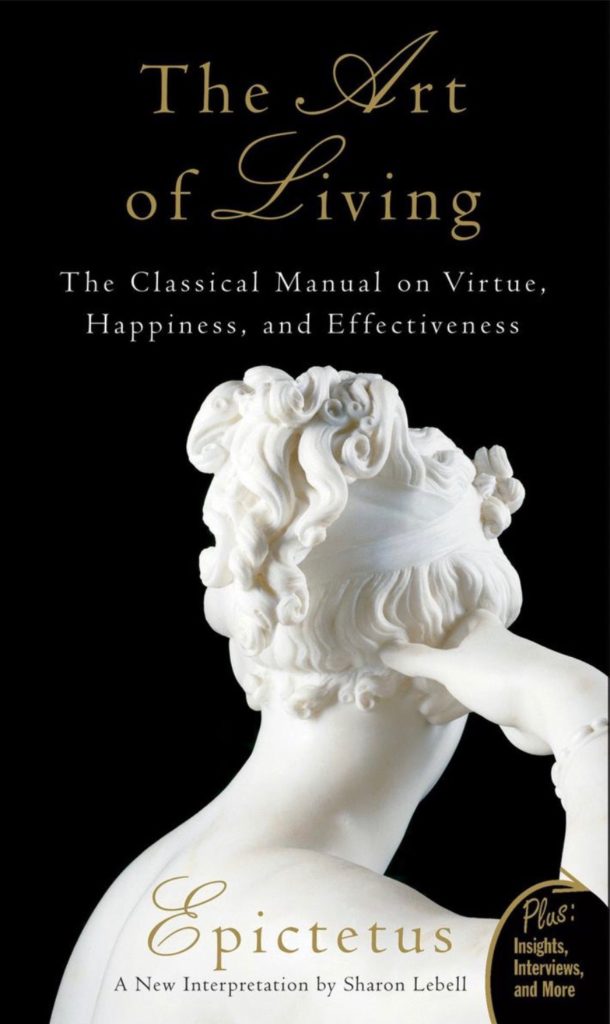 It’s a slim, entirely accessible contemporary translation and interpretation of the practical philosophy of Epictetus, a Stoic philosopher who lived from about 55 to 135 C.E. He thought that learning and living philosophy (literally, the love of ideas) is a practice that is both available to and good for everyone. The opening lines of this book are:
It’s a slim, entirely accessible contemporary translation and interpretation of the practical philosophy of Epictetus, a Stoic philosopher who lived from about 55 to 135 C.E. He thought that learning and living philosophy (literally, the love of ideas) is a practice that is both available to and good for everyone. The opening lines of this book are:
“Happiness and Freedom begin with a clear understanding of one principle: Some things are within our control and some things are not. It is only after you have faced up to this fundamental rule and learned to distinguish between what you can and can’t control that inner tranquility and outer effectiveness become possible.”
Right after discerning the un/controllable, one of Epictesus’s central tenets is that living well and moral development are synonymous. In our time and culture we tend to think that elites of all sorts (athletes, celebrities, professional artists, mega-Insta-influencers, and bazillionaires) have some kind of a corner on the living well market because they appear to have endless control and choices. Even the most sophisticated, critically minded of us can feel we aren’t quite somebody until we have evidence we’re successes, a book, a scalable idea, profitable business, or a large following. But going out in this moment of darkness can remind us of who we all are and what choice can really mean to us. Epictetus writes from a time when almost everyone had little control over their destiny. His philosophy of recognizing what you must relinquish to find peace offers a remarkably refreshing approach and, for me at least, a potential prescription. There is one passage that seemed especially relevant to this moment in our collective lives.
Caretake this moment.
Immerse yourself in its particulars.
Respond to this person, this challenge, this deed.
Quit the evasions.
Stop giving yourself needless trouble.
It is time to really live; to fully inhabit the situation you happen to be in now.
You are not some disinterested bystander.
…
He goes on
When your doors are shut and your room is dark you are not alone.
The will of nature is within you as your natural genius is within.
Listen to its importunings.
Follow its directives.
As concerns the art of living, the material is your own life.
No great thing is created suddenly.
There must be time.
Give your best and always be kind.
~Epictetus (Labell)
It is a season particularly prone to distractions from what I think Epictetus might mean by “the natural genius within.” We are in the cold dark season of the year and, it seems, in one of the cold dark (and decidedly unkind) times in our communities and country. It’s easy, in this moment of amphetaminic advertising and constant (mostly dire) news coverage, added to the holiday pressure to party, to dwell in dissatisfaction with the choices, leadership, historical moment, budgets, experiences, and even companions we actually have and to bemoan our lack of control. This dissatisfaction is no accident. Our social media feeds are full of people surfing better waves, dangling from steeper cliffs, having perfect weddings/better vacations/smarter children/etc./etc. Cutting-edge neuroscience is employed by hawkers to figure out how to get our brain’s reward center (the ventral striatum) to move us to want more of the choking assortment of available stuff, and the best possible experiences, plus more money, more recognition, and, while we’re at it, more of something crucial but elusive that we can’t quite identify but sure would like to just purchase in bulk from Costco.
All this apparent choice (and its illusion of control) can overwhelm. In the late 1980s the late, great David Foster Wallace wrote an essay about the effect on his cohort of the expanded assortment of television channels that came with cable.
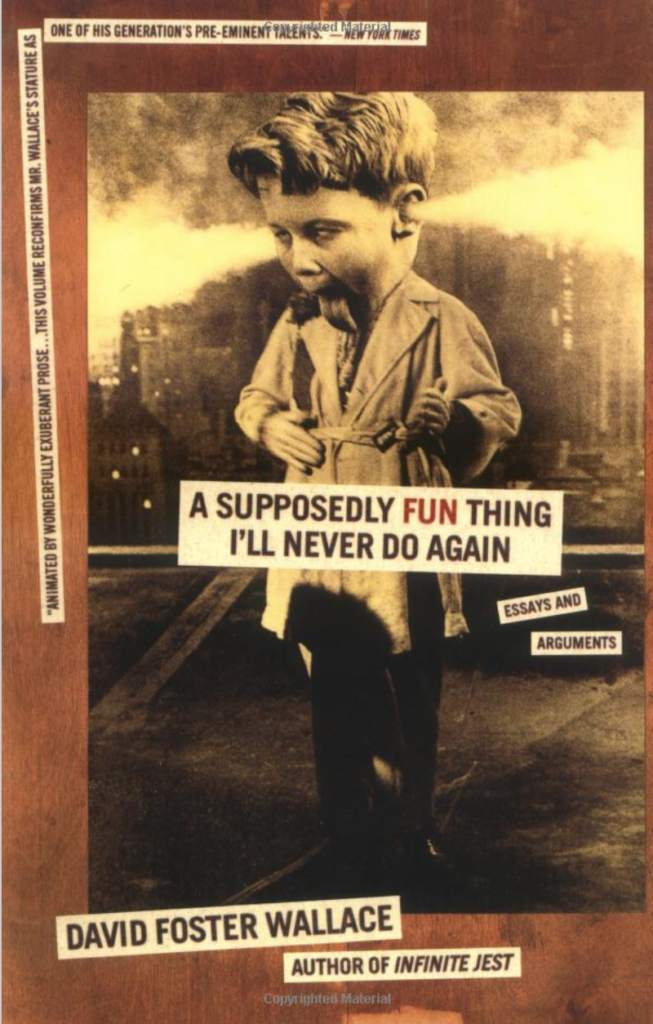
While it can seem almost medieval to think about only 40 channels of possible incoming distraction (as opposed to the 210,000,000 Google just delivered in response to me entering the word “distraction”), or the endless feed of my social media, I think he was onto something fundamental about the problem with a glut of choices.
Wallace wrote
“contemporary [entertainment] has gotten vastly better at enabling the viewer’s fantasy that he can transcend the limits of individual human experience… As a Treat, my escape from the limits of human experience is neat. As a steady diet, though, it can’t help but render my own reality less attractive (because I’m just one Dave, with limits and restrictions all over the place), render me less fit to make the most of it (because I spend all my time pretending I’m not in it), and render me more dependent on the device that affords escape from just what my escapism makes unpleasant.”
We really do get only “one wild and precious life.“
Plus these damn gadgets (like the one I’m typing on, the very one that gives me access to some damned inspiring photographs, eloquent writing and NPR, Mrs. Maisel and Encounters at the End of the World, and, and, and) are a source of light and, like moths, we sure do seem to like light. But long light isn’t this moment. Not in this place. It’s tempting to watch, and scroll, click and read our way through this dark season but, if Wallace was right, our escapism is what fuels much of the unpleasantness we have to work so hard and spend so much time and treasure to escape.
These short days and long nights of the cold, dark time offer their own unique abundance of wisdom and lessons if we can convince ourselves to layer up and go into that darkness where we are not really alone. If we can lean into and deal with the material out of which our lives are woven right now, and hold tight the hand of the friend who’s close, we might be able to see something in the dark we could never perceive in the light. The solstice is a fundamental shift beyond our control, one that we all have access to. If we can make our bodies more deeply aware of the days’ hours and feel that shift, if we can allow ourselves a regular dose of quiet in the dark, I have little doubt we could develop our capacity to hear the sotto voce opportunities for greater meaning, connection and caretaking in every moment.
Once you let your eyes adjust, it turns out the darkness isn’t only that— it’s also a resetting of your senses to perceive and find revelation through quieter light.
Here’s wishing you all a meaningful, mysterious, and adventurous Winter Solstice!
Further Exploration:
If you prefer to engage with Epictetus in a less interpreted form (a worthwhile endeavor!), you can read his discourses online for free here:
http://classics.mit.edu/Epictetus/discourses.html
While I have not sampled them all, I’d stake resources on a bet that David Foster Wallace delivered the single greatest commencement speech in the history of the genre.
An NBC listicle offering 5 good reasons to go out in the cold:
https://www.nbcnews.com/better/health/5-good-reasons-go-outside-even-when-it-s-freezing-ncna843331
“Physiological and psychological effects of walking on young males in urban parks in winter” Chorong Song, Dawou Joung, Harumi Ikei, Miho Igarashi, Mariko Aga, Bum-Jin Park, Masayuki Miwa, Michiko Takagaki and Yoshifumi Miyazaki. Journal of Physiological Anthropology (JSPA)201332:18
https://jphysiolanthropol.biomedcentral.com/articles/10.1186/1880-6805-32-18#Sec3

